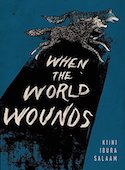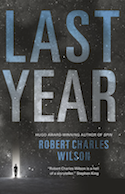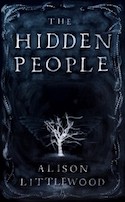The Future Alternative Past: Besties
Every month, Nisi Shawl presents us with news and updates from her perch overlooking the world of science-fiction, fantasy, and horror. You can also look through the archives of the column.
This time of year, everybody does it. I’ll be doing it soon myself: Making up lists. Second-guessing my picks. Justifying them. Libraries, book stores, bloggers, radio shows — pretty much anyone with an ax to grind and a public platform to grind it on will be sharing lists of the best books published in 2016. Or read in 2016. Or reviewed in 2016. Bests of one sort or another. Because there’s this urge to sum up any positive gains we’ve made by living through another year.
I contribute to annual “Best of” lists for Locus magazine and The Seattle Times. For the Times I pick one book — there can be only one — out of all those I’ve reviewed, and say in a single sentence what it’s about and why it’s the best. For Locus’s “Recommended Reading” I and several others spend weeks voting on a curated list of story titles. As I write this there are over 300 entries on the list. We hope to finish with around 120.
Aqueduct Press’s blog Ambling Along the Aqueduct hosts a series of posts covering the best books the publisher’s authors have read and/or the best music we’ve listened to and/or the best shows and films we’ve watched in a given year. After constructing and contributing to more restricted catalogs of bests, it’s peculiarly freeing to be able to write about not just the latest but the reconsidered greatest. In a past post to the series I geeked out on rereading the Harriet Vane/Peter Wimsey mysteries of Dorothy Sayers. Not only is Sayers no longer writing these, she’s dead. So is Octavia E. Butler, yet Kiini Ibura Salaam praised Toshi Reagon’s musical production of Butler’s Parable of the Sower in her “Best of 2015” round-up for Aqueduct. Because she could.
Similar in function to these lists are the numerous flourishing SFFH Year’s Best anthologies. Editor Gardner Dozois claims that if you don’t want to read his series’ most recent volume (he’s been compiling them since 1984) “you can squash a bug with it.” It’s true that these are pretty thick tomes. They include insightful analyses of the field and page after page of Honorable Mentions. Rich Horton, Jonathan Strahan, and the deceased David Hartwell have put out rival anthos, and for twenty years Ellen Datlow co-edited a companion Best of series for horror and fantasy. And there are others. SFFH is rich in short stories, especially with all the online magazines and crowdfunded collections available. These multiple “Best ofs” barely dent the surface of the genre’s tar pit, which is filled with inky gold.
Refining further on the concept of bests we come to awards. In SFFH there are many, and many are the ways their winners get chosen. Some selections are juried, like the Philip K. Dick Award for original US SFFH in paperback. Others are decided by polls, like the coveted Nebula Awards. But polls of whom? You have to be a member of SFWA (the Science Fiction Writers of America) to nominate or vote for Nebula candidates, and becoming a SFWA member takes more than money. Becoming a member of WorldCon, however, is a strictly financial matter, and WorldCon members select recipients of the equally prestigious Hugo Awards. As variously moody and/or diseased voting blocs have shown, you need not even attend. Slates for both the Rabid Puppies and the Sad Puppies have made their marks on the Hugo Awards for a couple of years running. Though their clearest mark so far has been a sweep of most Hugo categories by an author named “No Award,” that could change. I’ll let you know come next September.
Here come some cons
Meanwhile, there are other conventions to attend to. Maybe even to attend?
Arisia happens January 13 - 16, 2017, at the Westin Boston Waterfront. That’s in BOSTON! In JANUARY! Ride the “T” (like Seattle’s light rail, but older and better) from Logan airport to the hotel and then refuse to leave the Westin’s beautiful, wide-windowed lobby filled with Weeping Angels and anime characters for the rest of the cold, snowy weekend. Arisia is a good regional con, drawing on the Eastern Seaboard’s large and diverse fandoms to present panels featuring the likes of Smith College’s self-proclaimed Drama Queen Andrea Hairston, along with the usual weapons demos, masquerades, and so on. Such a good time to be had! I’ve gone to many an Arisia — handed out awards there, actually. I hope to go back some day.
However, next year I’ll be skipping Arisia in favor of the Black Comix Arts Festival taking place the same weekend in San Francisco. BCAF is part of that city’s Martin Luther King, Jr. celebration. 2016’s festivities were graced by Nigerian-American SFFH author Nnedi Okorafor, and 2017’s guests will include authors Tananarive Due and Ayize Jama-Everett, artist John Jennings, and, well, me. Join us!
Recent books recently read

When the World Wounds (Third Man Books) is Kiini Ibura Salaam’s second short fiction collection. Her first,Ancient, Ancient, won the 2012 Tiptree Award with its fantastical and exuberantly sensual depictions of nonstandard gender roles. In language as richly raunchy as ever, she writes here of sentient wolves on the prowl, swamp witches caught up into the sky by extremely local storm fronts, and a ghost using the detritus of a tragic flood to make magic masks. Want to read fiction that’s original and strange? Here you go.

In Last Year (Tor) by Robert Charles Wilson, time’s colonizers face the same dilemmas as those confronting European imperialists. Following the logic of the many-worlds interpretation of time travel, 21st-century intrusions into mid-Victorian Era US history create new universes, where new events transpire. A modern entrepreneur opens a resort in 1876 Illinois and sells his contemporaries luxury tour packages. But how can he bear to make money off voyeurs watching horrible things happen to real people — the rise of the Ku Klux Klan, the genocide practiced against Indians? And what of the new atrocities their presence may trigger? Through the unassuming viewpoint of reformed drifter Jesse Cullum, Wilson shows the complex power differentials operating between staff, 19th-century natives, 21st-century tourists, and renegades intent on averting coming cataclysms. Add racial and sexual politics and you’ve got a book that’s both fun and challenging.

Alison Littlewood’s depiction of Victorian times in The Hidden People (Jo Fletcher Books) is a bit different: It takes place in a past divided from our present by more than years. The author’s fascination with “fairy burnings,” in particular the 1895 death of Irishwoman Bridget Cleary, led to this meticulously imagined novel of a bourgeois London gentleman investigating a northern cousin’s immolation under similar circumstances. In Yorkshire, Albert Mirrals gradually finds that the rational explanations he once entertained for what he believes was his cousin’s murder — domestic violence, jealousies — become entwined with the lyrical madness of possession. Quotations from Yeats and other poets magnify the effects of Littlewood’s carefully period prose.